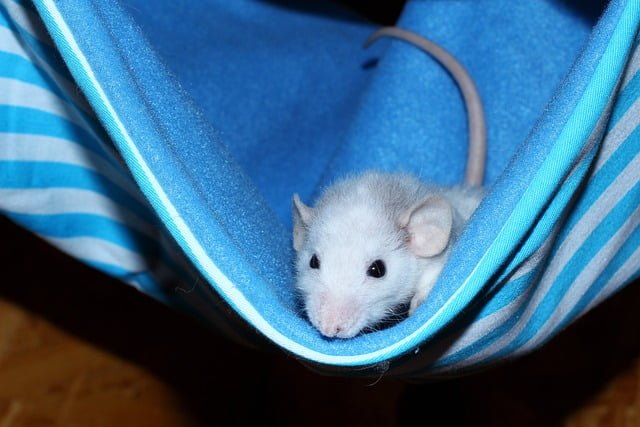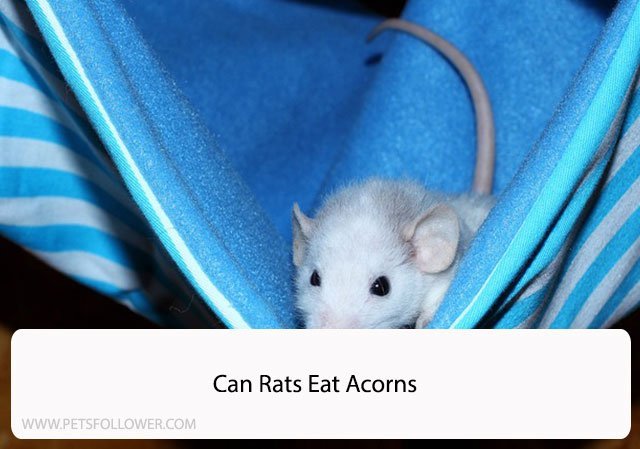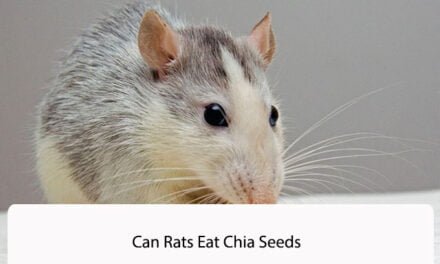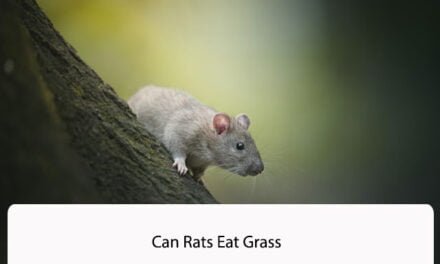Rats are known for their ability to eat almost anything, which often leads to questions about what they can and cannot eat. One common question is whether or not rats can eat acorns. Acorns are the nuts that fall from oak trees and are a staple food for many animals in the wild.
The answer to whether or not rats can eat acorns is yes, rats can eat acorns. However, it is important to note that acorns should not be the primary source of food for rats. While acorns do contain some nutrients, they are not a complete and balanced diet for rats. Additionally, acorns can be difficult for rats to digest and may cause gastrointestinal issues if consumed in large quantities.
In this article, we will explore the topic of rats and acorns in more detail. We will discuss the nutritional value of acorns, the potential risks of feeding acorns to rats, and offer some alternative food options for pet rats. By the end of this article, you will have a better understanding of whether or not acorns are a suitable food for rats and how to provide a healthy diet for your furry friends.

Understanding Acorns
Acorns are the nuts produced by oak trees, and they are known to be a favorite food of many animals, including rats. However, before we dive into whether or not rats can eat acorns, let’s first take a closer look at what acorns are and what they contain.
Acorns come in different shapes and sizes, depending on the species of oak tree they come from. They have a hard outer shell that protects the nut inside, and they are usually brown or green in color. Acorns are rich in nutrients, including carbohydrates, fats, and proteins, as well as vitamins and minerals such as vitamin E, magnesium, and potassium.
However, acorns also contain tannins, which are bitter-tasting compounds that can be harmful in large amounts. Tannins can cause digestive problems, such as stomach upset and diarrhea, and they can also interfere with the absorption of certain nutrients in the body.
To make acorns safe for consumption, they need to be processed in a certain way. This usually involves soaking them in water to remove the tannins, or roasting them to break down the tannins and improve their flavor.
Overall, acorns can be a nutritious food source for rats, but they need to be prepared properly to avoid any potential health problems. In the next section, we will explore whether or not rats can eat acorns and how they can benefit from them.
Rat’s Dietary Needs
As omnivores, rats have a diverse diet that includes both plant and animal-based foods. In the wild, rats consume a variety of foods such as fruits, vegetables, grains, nuts, seeds, insects, and small animals. In captivity, rats should be fed a balanced diet that meets their nutritional needs.
At a minimum, a rat’s diet should consist of a high-quality commercial rat food that provides a balanced blend of protein, fat, and carbohydrates. In addition to commercial rat food, rats should also be given fresh fruits and vegetables daily. These foods provide essential vitamins, minerals, and fiber that rats need to stay healthy.
Rats also require a source of protein in their diet. This can come from animal-based foods such as cooked chicken, eggs, or yogurt. Alternatively, rats can get protein from plant-based sources such as beans, lentils, and nuts.
It’s important to note that rats have specific dietary requirements that must be met to maintain their health. For example, rats require a source of vitamin C in their diet as they cannot produce it on their own. Rats also require a source of calcium to maintain strong bones.
In summary, rats require a balanced diet that includes a high-quality commercial rat food, fresh fruits and vegetables, and a source of protein. It’s important to meet a rat’s specific dietary needs to ensure their health and well-being.
Can Rats Eat Acorns?
Acorns are a popular food source for many animals, including squirrels, deer, and birds. But can rats eat acorns too? Let’s find out.
Firstly, it’s important to note that rats are omnivores and can eat a wide range of foods. This includes fruits, vegetables, grains, and even meat. So, in theory, rats can eat acorns.
However, there are a few things to consider before feeding acorns to rats. Firstly, acorns contain tannins, which can be harmful to rats in large amounts. Tannins can cause digestive problems and may even lead to kidney damage.
Additionally, acorns can be difficult for rats to digest due to their hard outer shell. This can lead to blockages in the digestive tract, which can be fatal for rats.
Overall, while rats can technically eat acorns, it’s not recommended. There are safer and more nutritious foods available for rats to eat, such as fresh fruits and vegetables, grains, and lean proteins. If you do decide to feed acorns to your rats, make sure to do so in moderation and monitor them closely for any signs of digestive problems.

Potential Health Risks
While acorns are generally safe for rats to eat, there are some potential health risks to keep in mind. Here are a few things to consider:
- Tannins: Acorns are high in tannins, which can cause digestive upset and even kidney damage in large quantities. While rats are less susceptible to tannin toxicity than some other animals, it’s still important to monitor their intake and make sure they don’t overindulge.
- Mold: Acorns can harbor mold, which can lead to respiratory problems and other health issues in rats. It’s important to inspect acorns carefully before feeding them to your rats, and to avoid any that show signs of mold or other damage.
- Choking hazards: Acorns are hard and can pose a choking hazard if not properly prepared. Make sure to remove the outer shell and chop the acorn into small pieces before feeding it to your rats.
- Nutritional imbalances: While acorns are a good source of fiber and some nutrients, they are not nutritionally complete and should not be the sole source of your rat’s diet. Make sure to offer a variety of other foods to ensure your rats are getting all the nutrients they need.
Overall, while acorns can be a healthy addition to your rat’s diet in moderation, it’s important to be aware of these potential health risks and take steps to mitigate them.
Safe Alternatives to Acorns
When it comes to feeding rats, it’s essential to provide them with a well-balanced diet that meets their nutritional needs. While acorns are safe for rats to eat, they should not be the primary food source. In this section, we will discuss some safe alternatives to acorns that you can feed your pet rats.
Fruits and Vegetables
Fruits and vegetables are a great source of vitamins and minerals for rats. Some safe options include:
- Apples
- Bananas
- Blueberries
- Broccoli
- Carrots
- Cucumber
- Grapes
- Kale
- Peas
- Sweet potatoes
When feeding fruits and vegetables, it’s important to wash them thoroughly and remove any seeds or pits that could be harmful to your rats.
Protein Sources
Protein is essential for rats to maintain their health and energy levels. Some safe protein sources include:
- Cooked chicken
- Cooked eggs
- Tofu
- Cooked fish
- Cooked lean meat
When feeding protein sources, it’s important to remove any bones or skin that could be harmful to your rats.
Grains and Seeds
Grains and seeds are an excellent source of fiber and carbohydrates for rats. Some safe options include:
- Brown rice
- Quinoa
- Oats
- Buckwheat
- Sunflower seeds
- Pumpkin seeds
- Flax seeds
When feeding grains and seeds, it’s important to provide them in moderation to prevent obesity.
By incorporating these safe alternatives into your rat’s diet, you can ensure that they are getting the proper nutrients they need to stay healthy and happy.
Conclusion
Based on our research, it appears that rats can eat acorns, but it may not be the best food source for them. While acorns do provide some nutritional value, they also contain tannins and other compounds that can be harmful in large quantities.
It is important to note that rats are omnivores and can eat a wide variety of foods, including fruits, vegetables, and grains. However, their diet should be balanced and varied to ensure they receive all the necessary nutrients.
If you do decide to feed acorns to your pet rat, it is important to do so in moderation and to remove any shells or debris. It may also be a good idea to consult with a veterinarian or experienced rat owner to ensure that your rat’s diet is appropriate and healthy.
Overall, while rats can eat acorns, it is important to consider the potential risks and to provide a balanced diet for your pet.

Frequently Asked Questions
Are acorns safe for rats to eat?
Yes, acorns are generally safe for rats to eat. However, it is important to note that some species of acorns may contain toxins that can be harmful to rats. It is recommended to consult with a veterinarian or a rat nutrition expert before introducing acorns into your rat’s diet.
Can rats digest acorns?
Yes, rats are able to digest acorns. However, acorns are high in fiber and may cause digestive upset if consumed in large quantities. It is important to introduce acorns gradually into your rat’s diet and to monitor their digestion.
What are the nutritional benefits of acorns for rats?
Acorns are a good source of fiber, protein, and healthy fats for rats. They also contain vitamins and minerals such as calcium, phosphorus, and potassium. However, it is important to note that acorns should not be the sole source of nutrition for rats and should be consumed in moderation.
Are there any potential health risks for rats that eat acorns?
As mentioned earlier, some species of acorns may contain toxins that can be harmful to rats. Additionally, acorns are high in fat and calories, which can lead to obesity and other health issues if consumed in excess. It is important to introduce acorns gradually into your rat’s diet and to monitor their health.
How should acorns be prepared for rats if they can eat them?
Acorns should be thoroughly washed and dried before being offered to rats. They can be fed raw or roasted, but it is recommended to remove the outer shell before feeding to rats. It is also important to offer acorns in moderation and to monitor your rat’s digestion and overall health.
What are some alternative food options for rats if they cannot eat acorns?
If your rat cannot eat acorns, there are many other healthy food options available. Some examples include fresh fruits and vegetables, whole grains, lean protein sources such as chicken or tofu, and commercially available rat food. It is important to provide a balanced and varied diet for your rat to ensure they receive all necessary nutrients.





